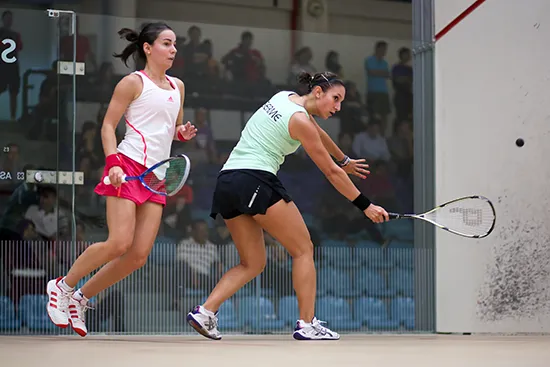Buyer's Guide to Sports Insurance

Customers often approach us with a host of interesting questions concerning sports insurance. It is easy to see why - sports insurance can be complex. At Quote Sports Insurance, we attempt to make it as quick, simple and clear as possible. With this in mind, we wanted to create a comprehensive buyer’s guide to sports insurance that includes many of our most frequently asked questions.
As you will see as we get deeper into this blog, the answer to many questions concerning insurance is ‘it depends’. When looking for certainty, this can be unsatisfying. But it is the truth. Rather than leaving it at that though, we provide you with all the available information, detail the critical factors that typically determine purchasing decisions and tell you what to look out for.
What types of sports insurance are available?
We can break down sports insurance into several categories. The four most common are:
- • Health insurance - helps cover medical costs and any expenditure related to medical treatment.
- • Income protection - ensures you can cover essential financial obligations in the event of an incident or accident.
- • Life insurance - provides loved ones and dependents with financial security should the worst happen.
- • Equipment insurance - covers your sporting equipment and helps you replace essential gear if lost, damaged or stolen.
Check out our comprehensive guide to learn more about the various types of insurance.
What does sports insurance typically cover?
If you work with a specialist sports broker, like Quote Sports Insurance, you can tailor your policy to your needs. This enables you to build a policy that reflects your needs and includes everything you want and nothing you don’t. These bespoke policies typically represent much better value for money.
Looking at the four main insurance categories listed above, you can usually design policies around the following features and components.
- • Health insurance - covers private diagnostic tests and healthcare treatments for injuries such as fractures, dislocations, torn tendons and other similar issues. It can also cover illnesses and recuperative or rehabilitative treatments.
- • Income protection - meets private financial obligations, such as rent, mortgage payments, energy bills, living expenditures, credit card repayments and other debts.
- • Life insurance - much like income protection, we can set up life insurance to cover various financial obligations and protect your family in the future.
- • Equipment insurance - you can choose to cover everything from essential sporting equipment to spare parts and secondary gear. For instance, someone in motorsports may want to insure their car, the spares in their garage and the trailer they use to transport the vehicle.

Do I need sports insurance if I already have health insurance?
You may be covered for some sporting injuries if you already have health insurance. But there is a good chance there will be a few key exemptions.
With this in mind, the first thing to do is check your current health insurance policy. From there, the following consider the following factors.
1. What your current health insurance policy provides for
Establish what your current health insurance covers and what it omits. Standard health insurance will often cover certain medical expenses for injuries but leave you exposed when it comes to sports-related therapies, rehabilitation treatments and other non-medical expenses. You also need to check your excess for sports-related claims, as they can be extremely high. In these cases, taking out a separate sports-specific insurance policy may actually be the more financially astute thing to do.
2. Consider other types of cover
Sports policies often include more than health insurance, so you may want to take out sports-specific insurance to mitigate other risks. For instance, liability insurance covers legal fees and settlements that are typically outside the remit of health insurance. The same goes for event and travel insurance, equipment coverage and income protection. Sports insurance enables you to build policies that combine elements of all these types of coverage, resulting in coverage that you can tailor to your needs.
3. Level of risk
In sports, two primary factors determine your level of risk. First, the sports you participate in. Some sports are simply more dangerous than others. For instance, skiing exposes you to greater risk than golf. Second, how frequently and intensely you participate in your sport. Playing a casual game of five-a-side football once a week in the park is less risky than playing competitively twice a week and training intensely between.
How much does sports insurance cost?
The following factors will influence the cost of your sports insurance and determine how much you pay.
1. Type of sport
The sport (or sports) you participate in will have the most substantial impact on cost. High-risk activities like motorsports and skydiving will have higher premiums than low-risk activities, increasing the overall price.
2. Professional or amateur
Professional athletes often have higher premiums because they push their bodies and skills to the limit more frequently. They also tend to have more comprehensive coverage because their livelihood depends on their ability to participate in their chosen sport. On the other hand, amateur sports people tend to enjoy lower premiums.
3. Coverage limits and excess
What is (and is not) included in your insurance policy will also impact cost. The more extensive your cover, the better protected you are, but the more you can expect to pay. Similarly, the size of your excess will also influence your premiums. The lower your excess, the more you can expect to pay in premiums.
4. Age
The older you are, the more likely you are to sustain a physical injury or have an accident. Consequently, your insurance will likely be more expensive.
5. Health
Pre-existing health issues and injuries may also increase your insurance costs, though this is not always the case. It largely depends on the nature of your pre-existing condition and whether participation in your sport increases the risks of it recurring.
6. Location
While location is not always a factor in insurance pricing, premiums can vary depending on regional healthcare costs and the local legal environment. This is particularly true for international sportspeople who participate in countries with highly developed private healthcare systems or more litigious cultures.
7. Claims history
Finally, your claims history may also determine insurance costs. If you have claimed frequently in the past, you may have to pay higher premiums.
Are there age restrictions for sports insurance?
Generally, insurers do not impose age restrictions on policies. Instead, they tailor policies to distinct age groups. The older you get, the more you are likely to pay for your insurance. However, it is rare for providers to refuse cover entirely for a particular age group.
Does sports insurance cover travel-related expenses?
Sports insurance can cover travel-related expenses, but the extent of the coverage depends on the specific policy you take out. If considering a policy that includes travel-related coverage, take the following factors into account.
1. Trip cancellation, interruption or delay
If travelling abroad to participate in a sports event, you may want to protect yourself financially against cancellations and delays. This type of cover will often pay out for non-refundable travel expenses, such as accommodation or flights, should you not be able to attend the event because it does not go ahead, you are ill or an unforeseen event stops you from travelling. Travel delay insurance may cover any costs accrued while waiting to resume your journey, such as hotel accommodation and meals.
2. Medical cover while abroad
Some health insurance policies only cover medical services in your home country. If travelling abroad, international sports health insurance is often a good idea. It will cover you for hospital stays, doctor visits and emergency care. In many cases, it is also a good idea to cover yourself for medical evacuation and repatriation, particularly if your sport takes place in remote regions or a dangerous environment. This ensures you can be transported home in the event of an accident.
3. Team or club insurance
In some cases, you can purchase travel insurance for an entire team or club, reducing individual costs and ensuring all members enjoy comprehensive coverage.
Can I get coverage for my sports equipment?
Yes, most insurance companies will have policies that cover your sports equipment while abroad.
If you are looking for equipment insurance, we recommend working with a specialist sports broker that can provide an accurate and affordable quote.
Insurers with little understanding of sports insurance or equipment will often prove far more expensive.

Are there any exclusions or limitations in sports insurance policies?
Yes, sports insurance policies often feature exclusions and limitations. Your policy document will define the extent of your coverage. We recommend building a bespoke insurance policy with an advisor, like we do at Quote Sports Insurance, to ensure your cover includes everything you need it to. Exclusions can vary significantly between policies and insurers. But here are a few common limitations.
1. Pre-existing conditions
Some insurers will not cover you for injuries or illnesses that existed before you took out your sports insurance. As a result, you will need to shoulder the cost of treatment and related expenditures. Other insurers may offer you a policy. However, they will factor the pre-existing condition into your premium.
2. Wear and tear
Equipment wear and tear is often exempted, too. This usually includes items that are damaged or perish due to age or lack of maintenance. For instance, you cannot claim for tyres used in motorsports if they need replacing through regular use.
3. Improper use
Improper use can mean several things. In the case of insurance, it often refers to participation in an unauthorised or unsanctioned event or at a higher level than your policy permits. For instance, if you usually compete as an amateur and are insured as such but participate in a professional event.
4. Intentional damage
Like most insurance policies, sports insurance will not cover you for any damage or harm caused intentionally or through reckless or illegal actions.
5. Geographic exclusions
Your insurance policy may feature specific geographic exemptions, too. For example, it may only cover you when participating in the UK. Or you may have a Europe-wide or global policy. In some cases, geographic exemptions may limit you to certain venues. In motorsports, it is not uncommon for policies to cover some tracks and not others.
Do I need sports insurance for amateur or recreational activities?
Sports insurance is for everyone who participates in sports. After all, it’s not just the professionals who suffer injuries or have accidents. Whether you take out insurance and what risks you cover yourself against is a personal choice. To make those decisions, we recommend considering the following factors.
1. Your risk of injury
Are you participating in high-risk activities like mountain biking, snowboarding and rock climbing? Or are you more of a casual swimmer or weekend jogger? Insurance is beneficial in both cases, but much more urgent if you participate in riskier activities.
2. How often you participate
If you are an amateur cyclist who enjoys getting out on the roads every single day, you are exposed to greater risk than a weekend warrior who enjoys one long ride on a Saturday. Frequency will play a role in determining the kind of insurance you take out.
3. League requirements
Some leagues and events may require you to have sports-specific insurance before you can participate. It protects all those involved and makes for a safer sporting environment. In many cases, you will need to show evidence that you are insured before an event begins.
Specialist sports insurance with Quote Sports Insurance
At Quote Sports Insurance, we have the experience and expertise to help you find the perfect insurance policy. With our intimate knowledge of the sporting world, we make it easy to take out affordable, sports-specific policies that provide just the right level of cover. We understand the risks posed by different sports and ensure you don’t pay over the odds for your policy.
Whether you are a semi-professional rally driver or an enthusiastic amateur cyclist, we’ve got you covered. Reach out to one of our friendly advisors or find out more about our sports-specific insurance.